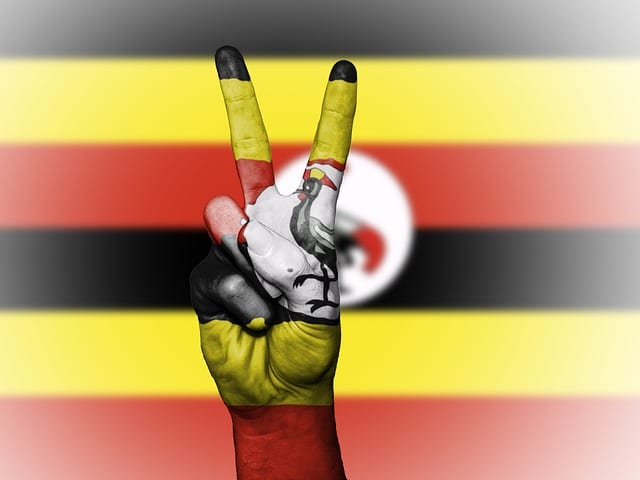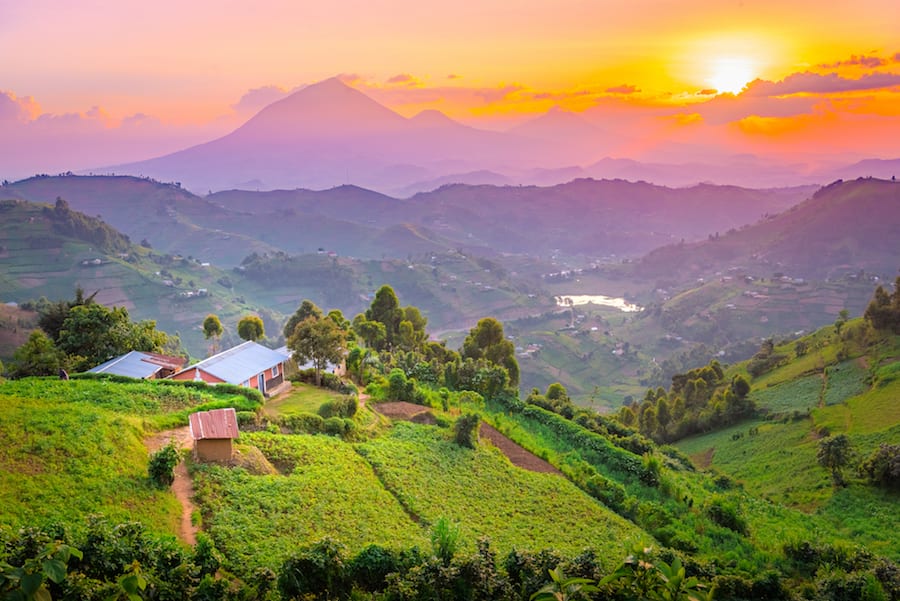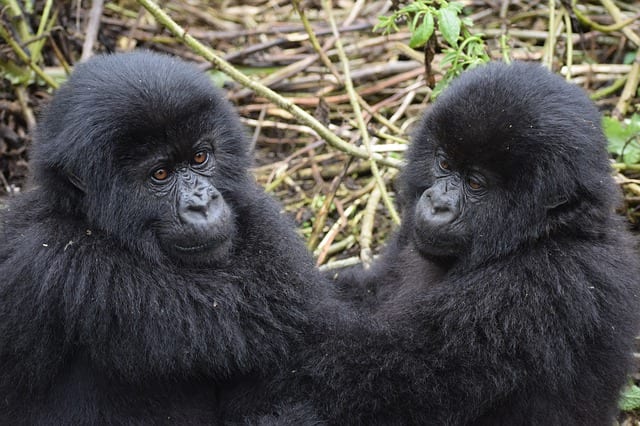Share this!
The Pearl of Africa: Uganda Travel Guide

In 1907, Winston Church Hill dubbed Uganda the “Pearl of Africa”. Snuggly located between Kenya and DRC in East Africa, Uganda flourishes with wildlife, a rich history and culture, and friendly locals.
This travel guide to Uganda gives you a quick review of the major highlights in the “Pearl of Africa”.
History
Before British colonialism, Uganda consisted of Bantu speaking populations who grouped to form powerful tribes and kingdoms. The Kintara Empire was the earliest empire formed in the 14th century.
This kingdom was preceded by the Buyoro-Kintara Kingdom, and eventually became the Buganda and Ankole Kingdoms, respectively.
In the 19th century, Uganda was colonized by British explorers and missionaries who ventured across the Indian Ocean.
Uganda gained independence from Britain in 1962, and became a republic in 1963. After their independence, Uganda experienced years of civil unrest and wars, the most profound of which happened during the eight-year reign of dictator Idi Amin Dada.
The current head of state of Uganda is President Yoweri Museveni. Museveni has been in power since 1985.

Geography
Uganda has a tropical Equatorial climate with mostly rainy seasons and two dry seasons (December February and June – August). The climate in the North-East is semi arid.
Uganda is landlocked with no access to the sea. However, it is surrounded by three of the Great African Lakes: Lake Victoria, Lake Edward, and Lake Albert.
Uganda’s tropical climate, mountains, and forest vegetation make it a suitable habitat to a host of wildlife animals; the most important of all being the mountain gorillas.
Language
English is the official language in Uganda. English fluency is usually influenced by socio-economic factors. British English is largely spoken by the educated, while Ugandan English (English mixed with the local dialect and jargon) is spoken by those in lower socio-economic class.
Apart from English, Luganda is widely spoken by locals, especially in the capital city, Kampala. Swahili is the common African trade language and spoken mainly in the North-East.
Transportation
There are many ways to get around Uganda; by bus, plane, taxi, car, and the local transport system, ‘boda boda’.
The boda boda includes small mopeds, bicycles, scooters and motorcycles used by locals. The boda boda is cheap, convenient, and fast but not always safe. When using a boda boda, be very careful to maintain a good hold and tell the driver to slow down if necessary.
Traveling by bus is popular, convenient, and relatively affordable. Most importantly, Uganda has a reliable bus system that covers the major towns and cities.
Domestic flights are used to avoid dusty long rides on land, but are typically not very scenic nor comfortable.
The taxi is the best way to get around Kampala and the neighboring towns. Taxis are efficient, cost effective, and give a good view of the landscape and terrain.
Tourists are advised to be wary of bus conductors who try to rip off customers by inflating prices for tourists. A little research beforehand can go a long way.

Food
Like most African dishes, Ugandan dishes are large and rich in starchy carbohydrates. Staple foods vary across regions.
Plantain is commonly eaten in the South; millet, in the North; and Irish or sweet potatoes in the West. Rice and cassava are national staple foods.
Sauces eaten with staple dishes include ‘luwombo’, which is made from meat, fish, and groundnut sauce steamed in banana leaves.
Other sauces include chapati, groundnut sauce, and goat meat stew. Finger foods include whole fried tilapia or Nile perch, and muchomo, made from roasted chicken or goat on skewers.
In Uganda the legal drinking age is 18. Beer is the most common alcohol in Uganda.
Coffee is also a common beverage and produced from one of the finest coffee beans in East Africa. Chai tea and South African wine are also popular beverages.

Things to Do
Uganda is a top tourist destination in Africa. For a small country, Uganda lots of natural marvels on which your eyes can feast. There are ten national parks that protect over half of the world’s remaining mountain gorillas.
The parks also protect chimpanzees, leopards, lions, hippos, elephants, and the rare golden monkeys. Uganda is also a habitat for over 1,000 species of birds— more than ten percent of the world’s species.
With its impressive collection of wildlife and terrain, Uganda has several interesting activities and attractions to offer including:
- Gorilla tracking at the forests of Bwindi Impenetrable National park.
- Chimp tracking at Kibake, where about 13 species of primates are sheltered, including 1,500 chimps.
- White water rafting and kayaking on the Nile River.
- Mountain climbing on the rocky terrains of the Rwenzori mountains, also known as the “Mountain of the Moons”.
- Ethical pygmy tours from the pygmy tribe of Batwa.
- Wildlife Safari to any of the national parks and conservatives around.
- Volunteer groups and orphanage tourism.
- Bird-watching at most of the national parks.
- Sightseeing at Murchison falls.
Health and Safety
Like most tropical climate in Africa, tropical diseases like malaria, ebola, cholera, schistosomiasis, and intestinal worms are endemic to Uganda.
Healthy precautions for tourists include taking antimalarial drugs, sleeping under insecticide treated nets, avoiding infested streams, and drinking bottled water instead of tap water.
For the past 25 years of President Yoweri Museveni rule, safety has increased. However, as in most African countries, it is advisable for tourists to follow sensible rules to avoid getting into danger.
Tourists should stay in tourist areas and go out with trusted guides for tracking and treks. It’s advisable for tourist to avoid drawing attention to themselves by refraining from wearing excessive jewelry or carrying big flashy hand bags. Giving sweets and money to children is discouraged.
It is common for locals to openly stare at white tourists. This is a common phenomenon in most African countries. Locals are usually friendly and hospitable and it’s not unusual to hear them shout “welcome!” Or “mzungu!” which is a Kiswahili word for ‘foreigner’.
The Pearl of Africa is a sight to behold! If you ever plan on visiting Africa, Uganda should be at the top of your bucket list.







